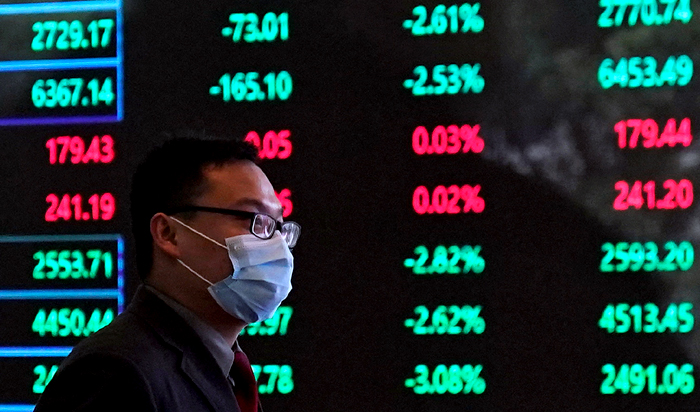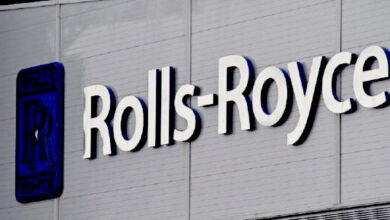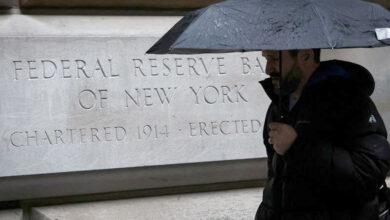US Stock Futures Rise on Tech Surge While Europe’s Markets Experience a Downturn

On Wednesday, global stock markets had a mixed performance with European markets reacting negatively to the strain in the U.S. banking sector. The STOXX 600 share index in Europe fell 0.9%, as regional banking stocks dropped 1.7%. Meanwhile, Asian markets outside of Japan rose in line with rising Wall Street futures, causing MSCI’s broad index of global stocks to remain steady.
San Francisco-based lender First Republic Bank’s recent announcement of a $100 billion plunge in deposits has revived fears over smaller U.S. banks. The announcement caused shares in the troubled bank to hit a record low on Tuesday. The situation has prompted investors to dial down profit expectations for the global banking sector, with banks under pressure to raise interest rates on savings accounts to keep hold of customers’ money.
On a positive note, Nasdaq futures were up 1.2% on Wednesday morning in Europe ahead of quarterly results from Facebook parent Meta Platforms later in the day. S&P 500 futures also gained 0.3% after bullish updates from Microsoft and Google parent Alphabet, whose $70 billion share buyback looked set to insulate the mood on Wall Street from banking sector troubles.
U.S. and European financial conditions have tightened significantly since the Federal Reserve and European Central Bank embarked on their most aggressive interest rate-hiking cycles for decades last year to battle inflation. This has dented confidence towards loan-dependent sectors such as real estate and raised questions over how global banks will deal with defaults.
The benchmark S&P 500 and Nasdaq indexes had both fallen heavily on Tuesday following weak consumer confidence data. Bonds rallied sharply, and interest rate futures markets priced in a higher chance of Fed cuts later in the year. U.S. ten-year yields fell nearly 12 basis points (bps) on Tuesday, their sharpest drop in more than a month, while steadying about 2 basis points higher at 3.398% on Wednesday morning in Europe. Germany’s ten-year yield slipped 2 bps to 2.375% after dropping 11 bps in the previous session.
The U.S. dollar index was steady against most majors on Wednesday after a 0.5% gain the day before. The euro edged 02% higher to $1.10, while gold remained pinned just below $2,000 an ounce. The yen was steady at 133.6 per dollar ahead of the Bank of Japan’s meeting this week, as markets await clues from new governor Kazuo Ueda about whether he might ditch policies that have suppressed domestic bond yields and the yen. Brent crude futures hovered at $81.35 a barrel, having dropped almost 4% overnight with the risk-averse mood.





